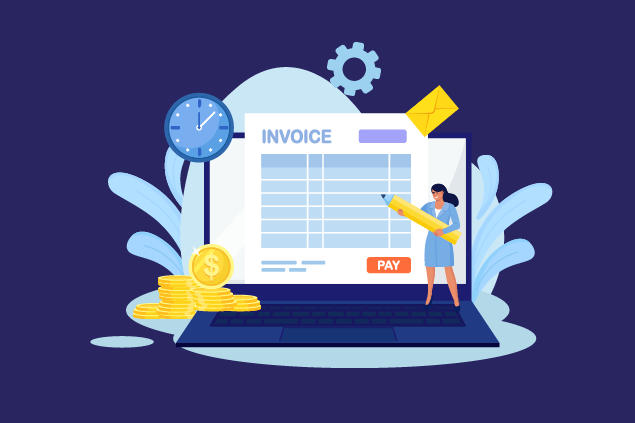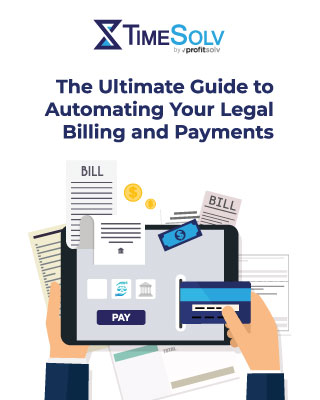In legal practice, the margin for error is razor-thin, especially when it comes to billing. A single slip in invoicing isn’t just a clerical error; it’s a fast track to malpractice claims and a loss of client trust.
This is where precision in legal billing comes into play.
This article dives into the hard-to-spot, sometimes-overlooked malpractice traps in legal billing. We’ll explore common challenges and the best strategies for avoiding them so you can ensure accuracy, efficiency, and ethical compliance in every billing cycle.
Identifying invoicing pitfalls: What are the most common errors that lead to malpractice claims?
Common billing errors for law firms can often lead to malpractice issues. These errors typically include:
- Overbilling: Charging clients for more hours than spent on their case. This can happen due to timekeeping errors, double billing for the same task, or inaccurate tracking of expenses. Overbilling damages a law firm’s reputation and exposes it to potential lawsuits from dissatisfied clients.
- Underbilling: Failing to charge clients for all the work done on their case. This can occur when lawyers neglect to record billable hours or overlook expenses incurred during the case. Underbilling results in a loss of revenue for the law firm and can also lead to financial strain.
- Misallocation of expenses: Incorrectly assigning costs to the wrong client or matter. This can happen due to clerical errors or mixing up client information. Misallocated expenses can result in clients being overcharged or undercharged, leading to disputes and potential legal action.
- Vague billing descriptions and lack of detail in billing statements: Clients are more likely to question their bill if they don’t understand what services were provided. This can lead to payment delays and even malpractice claims if clients feel the billing statements are intentionally vague or misleading.
- Duplicative billing: Charging clients multiple times for the same service. This can occur when a single task is recorded and billed by multiple staff members. Duplicative billing not only raises ethical concerns but also causes clients to question a firm’s integrity.
Inaccuracies are another source of billing missteps. Failing to track time and expenses accurately can lead to inaccuracies and potential overcharges, and incomplete billing records can cause disputes that harm a firm’s reputation.
Inaccurate rate calculations may fail to reflect changes in billing statements. This problem can be especially pernicious at law firms with complex rate and billing structures.
Finally, failure to comply with billing agreements and contract terms can cause significant issues. Ethical considerations are also crucial, such as accurately tracking time spent on pro bono work and disclosing conflicts of interest.
The peril of non-billable hours and how to mitigate malpractice risks
Non-billable hours—those spent on ancillary activities such as administrative work, marketing, or training—are necessary for running a law firm. But they can pose certain risks. Not only can they detract from revenue-generating activities, but improper handling of them in billing situations can lead to malpractice risks.
To mitigate risks associated with handling non-billable hours, law firms can adopt several strategies.
- First, firms should establish a clear understanding and categorization of billable and non-billable hours. Transparency in this matter can prevent misunderstandings and promote ethical billing practices.
- Second, developing more efficient processes for non-billable tasks can minimize the time spent on them. This could involve outsourcing, automation, or better task allocation.
- Third, firms should consider investing in legal technology and software that accurately tracks both billable and non-billable hours, reducing the chances of billing errors and disputes.
Additionally, regular audits of billing records can identify and rectify discrepancies promptly. This measure allows law firms to safeguard against potential malpractice risks while ensuring their financial health.
The Ultimate Guide to Automating Your Legal Billing and Payments
To stay competitive in today’s legal landscape, law firms must embrace the power of technology, especially when it comes to billing and payments.
The best way to improve your law firm’s cash flow while also increasing client convenience is 'Automation'.
Download our free guide to improve your legal billing and payment process today!
Strategies for precision: Utilizing TimeSolv to ensure accurate and ethical legal billing
TimeSolv’s invoicing features present a robust solution to the challenges and risks associated with billing discrepancies. Let’s explore how TimeSolv empowers legal professionals to navigate these complexities and avoid malpractice traps.
Flexible billing templates
TimeSolv offers customizable invoice templates, allowing for tailored bills and estimates for each client. This flexibility saves time and ensures that each invoice aligns with client-specific requirements, reducing the risk of errors that could lead to malpractice concerns.
Split billing
The software enables the division of invoices among multiple parties, a feature particularly useful in collaborative or complex cases. By clearly delineating financial responsibilities, TimeSolv helps maintain transparency and prevent billing disputes.
Fixed fee options
TimeSolv accommodates various billing arrangements, including fixed fees. By leveraging its time-tracking tools, firms can establish base fees that align with client expectations while maintaining profitability.
Invoice adjustment tools
TimeSolv provides the flexibility to adjust invoices quickly. This adaptability is crucial for catering to unique client needs or correcting errors before invoices are finalized, enhancing the accuracy and professionalism of billing.
Electronic billing
The platform supports electronic billing, including managing ABA task codes and LEDES formats. By moving away from paper billing, firms can reduce overhead costs and streamline the billing process while also adhering to industry standards.
TimeSolv addresses the critical elements of legal billing through these features—accuracy, efficiency, and ethical compliance. By integrating these tools into their billing practices, law firms can significantly reduce the risks associated with billing inaccuracies and enhance their overall service quality.
Ready to level up your legal billing practices? Sign up for a free trial today.
TimeSolv billing and malpractice FAQs
What are the common pitfalls to avoid when selecting legal billing software to prevent invoicing errors and malpractice risks?
Common pitfalls include choosing software that isn’t user-friendly, leading to user errors and inefficient billing processes.
Software that doesn’t integrate well with existing systems and lacks quality customer support can also contribute to invoicing errors and malpractice risks. That’s why it’s crucial to select intuitive software that integrates seamlessly and provides robust support resources.
How can legal billing software assist in tracking and categorizing non-billable hours to prevent revenue loss and mitigate malpractice traps?
Legal billing software offers detailed time-tracking tools and customizable categorization to record all client-related activities (including non-billable hours) accurately.
This comprehensive tracking prevents revenue loss and reduces malpractice risks by ensuring no billable activities are overlooked.
Are there specific features or tools within legal billing software that aid in compliance with ethical billing practices, reducing malpractice risks?
Yes, features like detailed audit trails, customizable billing guidelines, and clear invoice descriptions help maintain transparency and accuracy in billing.
These features facilitate adherence to ethical standards, while the ability to generate detailed reports ensures consistency and accountability, which is crucial for reducing malpractice risks.
The Ultimate Guide to Automating Your Legal Billing and Payments
To stay competitive in today’s legal landscape, law firms must embrace the power of technology, especially when it comes to billing and payments.
The best way to improve your law firm’s cash flow while also increasing client convenience is 'Automation'.
Download our free guide to improve your legal billing and payment process today!


















